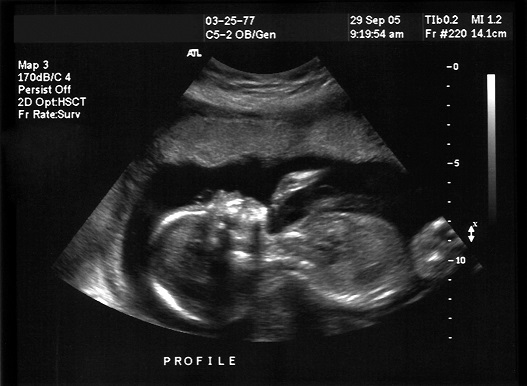Before the end of the month, possibly at the next plenary session of the European Parliament on Wednesday, June 23rd, a vote will be taken on adopting the document known as the “Matić Report.” This Report, presented by Croatian MEP Predrag Fred Matić, focuses on “the situation of sexual and reproductive health and rights” of women on the continent. The Report supports the Committee on Women’s Rights and Gender Equality. It is now up to European Parliament Plenary to accept or reject the document.
The Report analyzes the differences in the EU countries concerning “sexual and reproductive rights.” These rights address health and human rights issues, and are, therefore, the responsibility of each state. Therefore, the EU cannot impose the policy on all member countries.
But what the Matić Report seeks is for abortion to be declared a right and, more specifically, a “human right”. The symbolic weight of such a step inside and outside Europe would be immense.
To achieve this, the Matić Report indulges in a common ploy known since the ancient Greeks: logical fallacies.
Confucius insisted on the proper meaning of words, but Matić prefers our old friend Humpty Dumpty’s version:
“When I use a word,’ Humpty Dumpty said in rather a scornful tone, ‘it means just what I choose it to mean—neither more nor less.’”
The Matić Report takes Humpty’s line and runs with it. It’s hardly new, to be sure: for abortion supporters, the term “rights” has always meant whatever they want it to. By their logic, if they want their abortions, they must have a “right” to them. In fact, they want them so much, their “right” has to be universal. So, Humpty-style, “I have a right to do whatever I want” becomes their first commandment. Abortion is their Prime Mandate: there must be no other gods, period.
So there’s fallacy number one: A “right” is whatever I want it to be, no more and no less.
And here enters the second fallacy: that assertion might sound easy, but it’s full of contradictions.
2+2 can equal 4, but it can also equal 5 once in a while, because, well, Humpty wants it to.
When you’re selling a lie, mixing it up with things that are true helps. “I’ve said 2 + 2 equals 4 a lot, haven’t I? So I’ve proven that I’m trustworthy. So, take my word for it, this one time 2 + 2 equals 5. Please believe it, because that’s very important to me.”
On that note, the Matić Report embraces some very reasonable measures, such as supporting maternity care aides. But we’re not supposed to notice that “maternity” means not only “mother,” but also means “killing mom’s baby”—after which, like magic, she’s not really “maternal” at all.
And yet, that’s at the heart of the “comprehensive sexuality education” that the Matić Report wants to sell to elementary and high school students. And the same rule applies to the Report’s provision of contraception to “all persons of reproductive age.”
As Aristotle put it, “A cannot be non-A.” The Matić Report is a classic denial of one of history’s most basic rules—the Law of Non-Contradiction. Does “maternity” mean “motherhood” or “non-maternity”?
For the Matić Report, it can be both!
The Report combines these two logical fallacies to manufacture a so-called “right” that today presents a grave danger, one that has alerted pro-life organizations across the continent: the proclamation of the “right” to legal abortion.
For years, pro-abortion groups active in international organizations have claimed that the term “reproductive rights” does not include abortion. Pro-life groups have consistently branded this as a hoax, a trap to promote abortion without saying so. The Matić Report makes it clear that we were right all along—in fact, that this trap lay at the heart of the international pro-abortion movement’s strategy. That’s right. Every time international progressivism says, “reproductive health,” it includes Humpty’s quiet command: abortion must be a “right” because they want it to be.
Abortion is already legal in most EU countries, except in Malta and Poland (in the latter, it is allowed in extreme cases). This Report requests that the member states commit themselves to guarantee the possibility of abortion. In other words, it presents abortion as a right that all countries should honor. The document explicitly states that, besides legalizing abortion in the two countries where it is illegal, all EU member states would be required to dedicate government funding to abortion. Legalization is no longer enough. They now demand that governments facilitate abortion as well.
The issue does not end there. Along with support and advocacy, the Report notes that it is just as important to remove “obstacles that limit access” to abortion. At this point, the Report does not refer to “legal obstacles” but to situational ones. It highlights conscientious objection, the right of health personnel not to perform abortions, as the primary instance. For example, in Poland, abortion is not performed because almost all physicians have formally lodged a conscientious objection.
But that’s unfair. In the Report’s words, the possibility of conscientious objection should be eliminated because it would be “the denial of medical care based on personal beliefs”.
Of course, this turns reality upside-down. The Report, and abortion supporters in general, demand abortion “rights” because of their “personal beliefs.” Now they condemn those defending the right to life for their personal beliefs.
For promoters of the Report, those objecting on the basis of conscience would violate women’s rights and therefore cause “inequality.” But, of course, neither would it be possible to inform women about abortion at the doors of clinics or to pray for the end of abortion, because that would be “obstructing a right” and, therefore, exercising “gender violence.”
In short, the Report attempts to qualify abortion as a human right and to make that assertion a major issue. If the Report is passed, EU bureaucrats could pressure European countries to devote increasing amounts of public health care funding to abortion clinics. In addition, they could increase pressure on non-European and developing countries receiving humanitarian aid to include abortion policies in exchange for financial assistance. Professionals who refuse to perform abortions would be forced to do so, to lose their jobs, or go to jail. Opposing abortion would be a violation of human rights and, as the Report says, “a form of violence against women and girls.”
By that logic, all pro-life groups operating in Europe would potentially be accused of violating human rights.
Pro-life groups and movements in Europe are mobilizing. The One of Us Federation, of which PRI is a member, is lobbying hard in Brussels and every country with parliamentary representation. The European Centre for Law & Justice (ECLJ) has called the Report “a veritable Planned Parenthood wish list” and has launched its campaign to defeat it. The Commission of the Bishops’ Conferences of the European Union (COMECE) has also criticized the document and called on legislators to oppose it. The CitizenGo platform, which PRI also supports, has launched an alert backed by hundreds of thousands of Europeans. As a result, when the Report’s promoters feared they might lose the vote, they postponed the debate.
Wednesday, June 23, will be another crucial date in this hard-fought battle.
Related Stories: Ecuadorian Legislature Debates Legalizing Abortion in Cases of Rape and Fetal Disability – PRI (www.pop.org)











